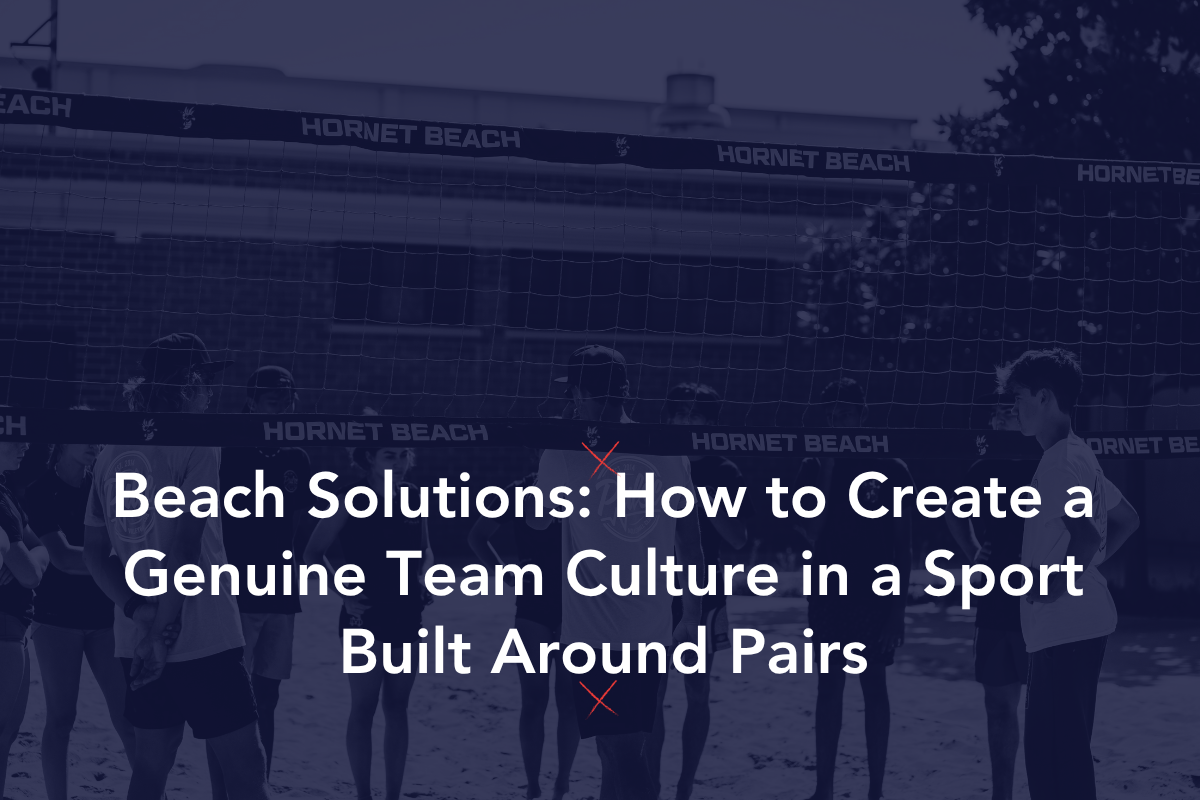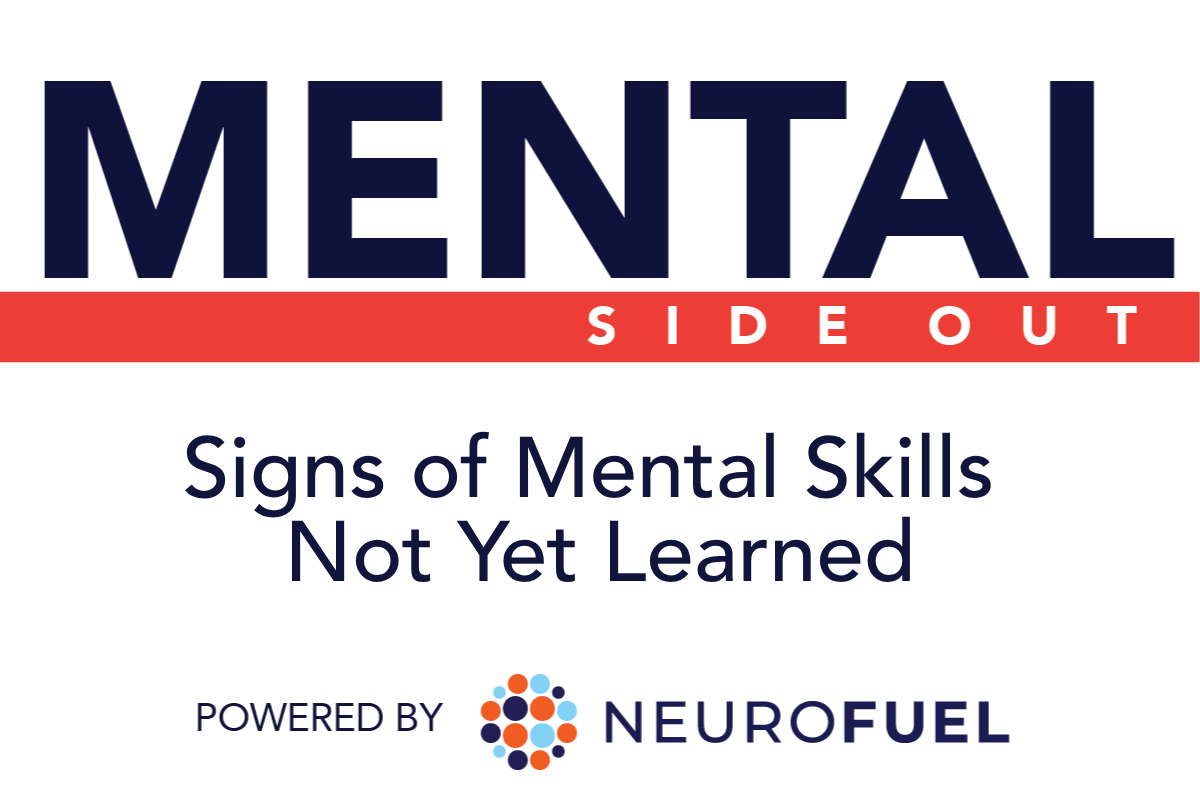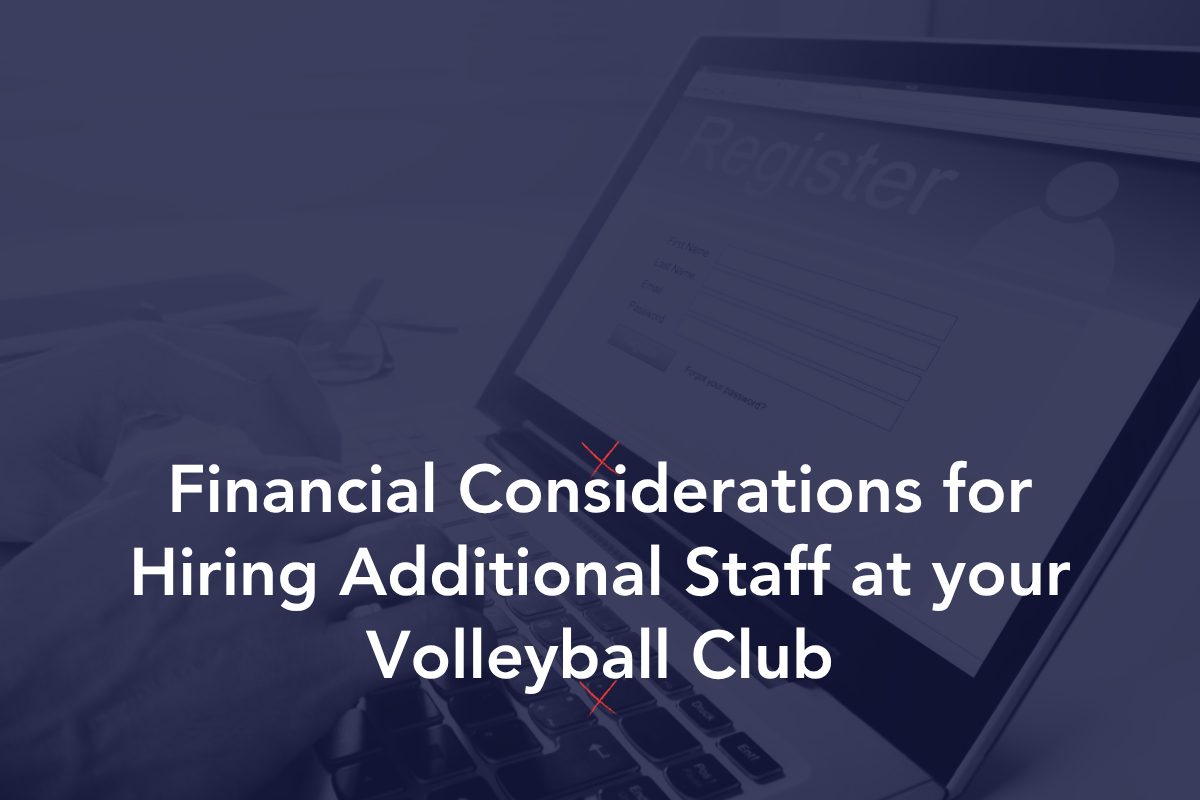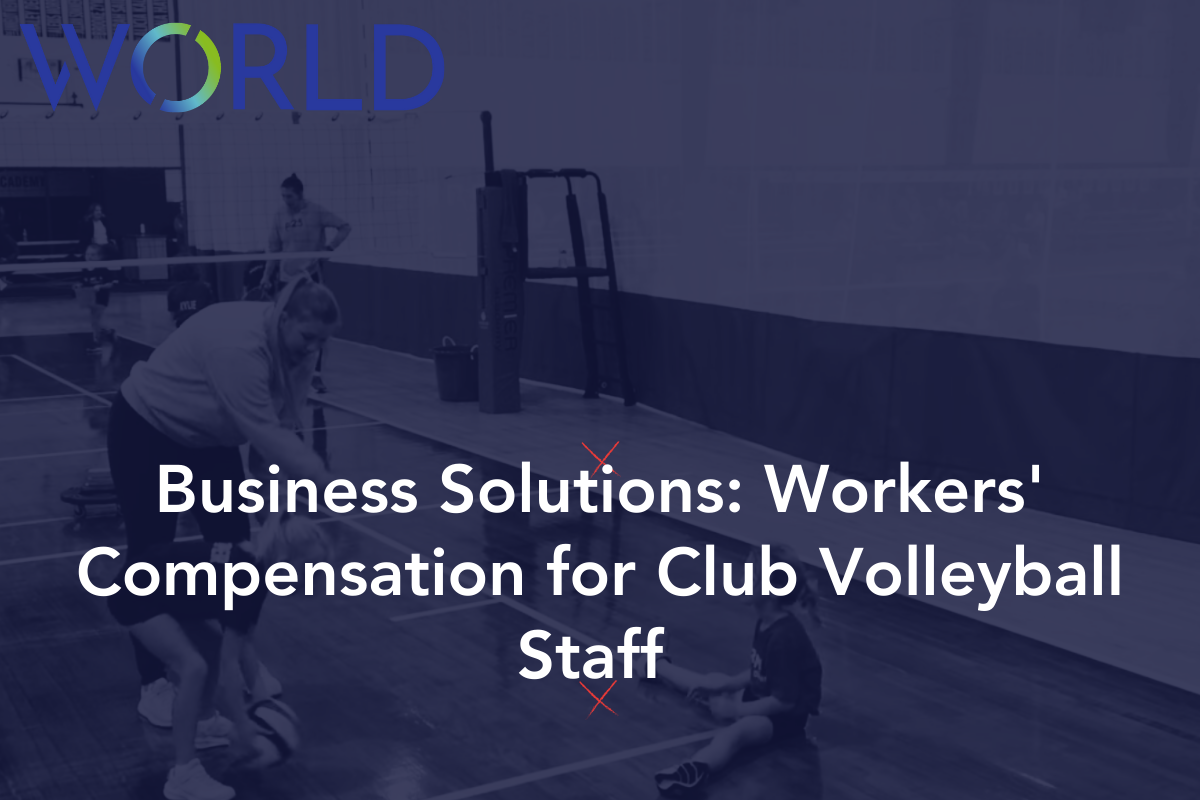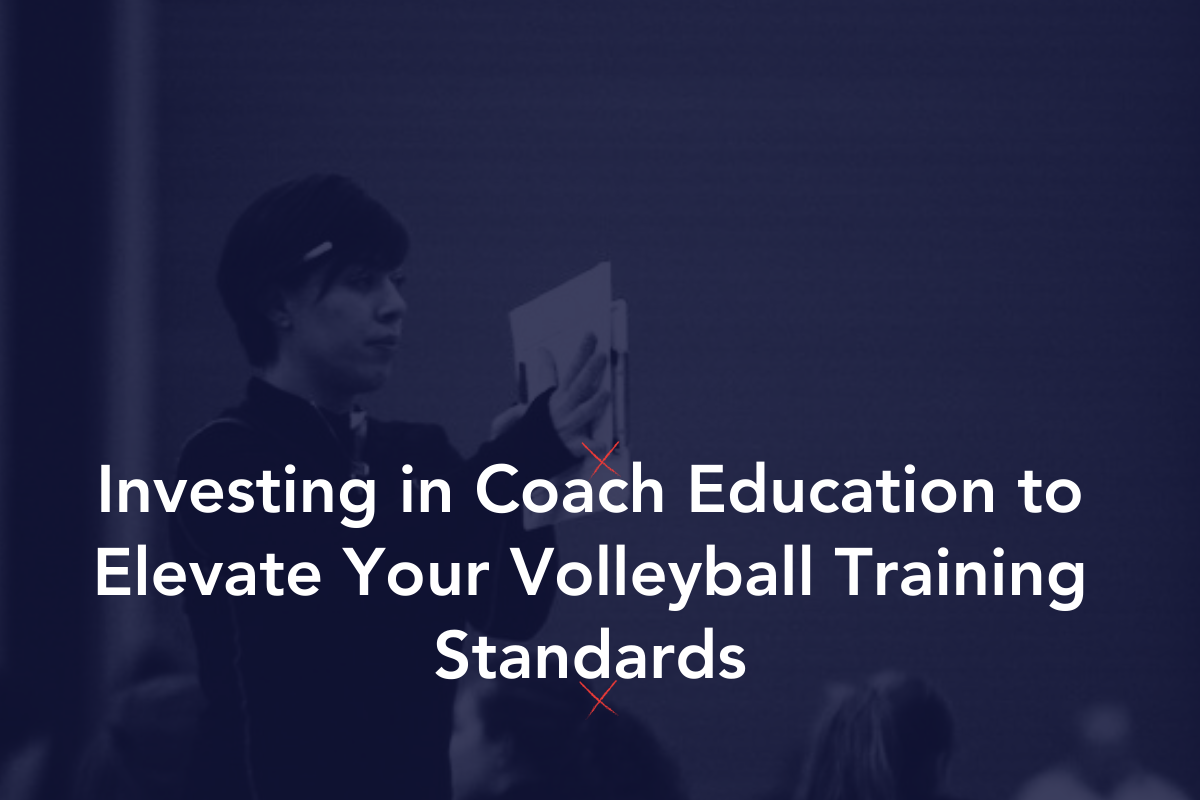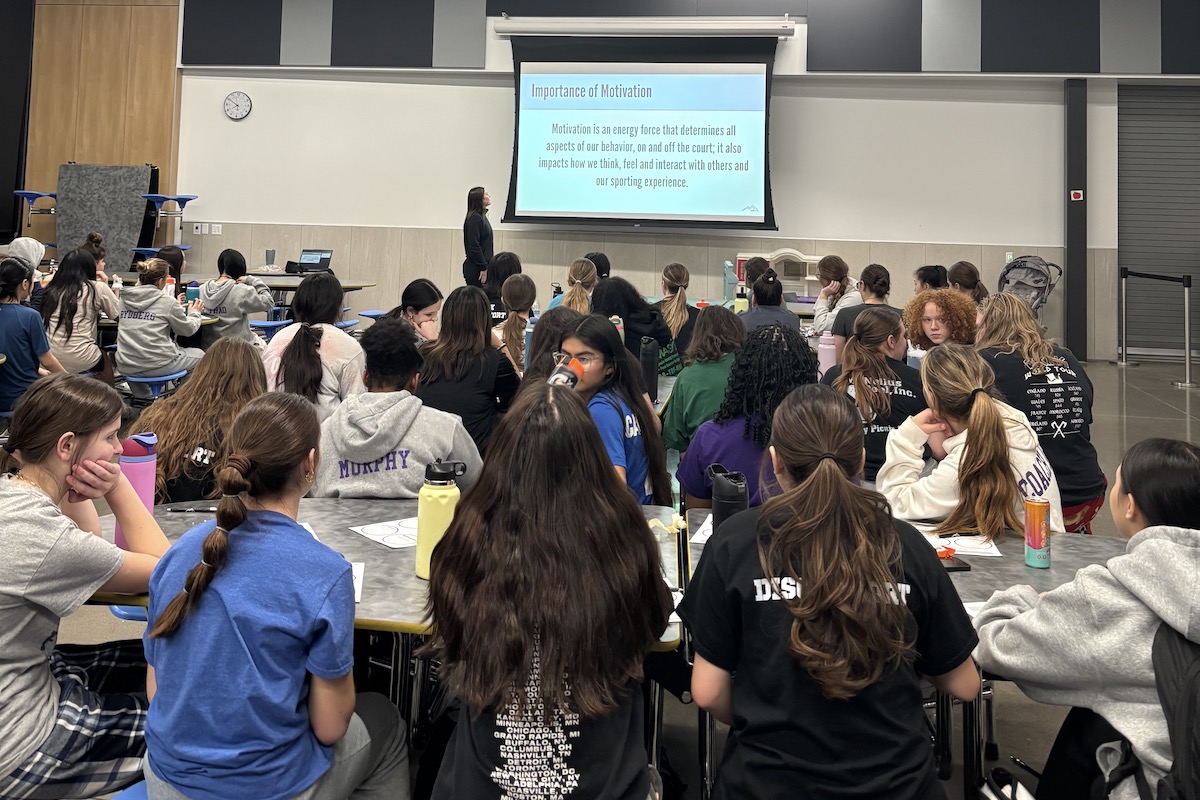Youth sports create a wonderful opportunity for young athletes to learn and grow. Sports have been associated with many positive outcomes and opportunities such as creating active living habits, setting goals, providing social support, forming values, practicing mindfulness, and building resilience. However, there is always the context for there to be difficulties and challenges.
Depression and anxiety in athletes is sometimes difficult to specifically pin down. We hold ourselves accountable as their adults, coaches, and mentors to know what is going on with them at all times; we know their schedules, we know what they have to do in their day, we know how they celebrate, and we know how they struggle. No matter how much we know about them, though, we will never immediately or personally know what they are emotionally experiencing without giving them space to share.
Here are resources for coaches during this difficult time to help foster a team culture that can help young athletes approach mental health safely and effectively.
Identifying Signs and Symptoms
The NCAA provides a variety of resources for identifying depression and anxiety in athletes and to help understand and support mental health. These resources can be found here. Anxiety and depression often include both emotional symptoms and physical symptoms. Identifying these symptoms can help in understanding what next steps can be taken to help. The NCAA identifies the following symptoms of anxiety and depression as signs to pay attention to, though if an athlete is acting out of their norm in anyway, it can be an indicator to pay attention.
Signs and Symptoms of Anxiety Include:
Emotional
- Feelings of apprehension or dread
- Feeling tense or jumpy
- Restlessness or irritability
- Anticipating the worst
Physical
- Pounding or racing heart and shortness of breath
- Sweating, tremors, and twitches
- Headaches, fatigue, and insomnia
- Upset stomach, frequent urination, and diarrhea
For more information on anxiety in athletes, download this resource.
Signs and Symptoms of Depression Include:
- Persistent sadness or empty mood
- Dramatic changes in sleep, appetite, concentration, and energy
- Lack of interest in activities
- Hopelessness or guilty thoughts
- Physical aches and pains
- Suicidal thoughts
For more information on depression in athletes, download this resource.
It is important to state that you may not identify signs of depression or anxiety in your athletes. You should not expect that you, their teammates, coaches, or parents will always see differences. The emotional load on all parties at this time in the pandemic is intense and individual needs must be honored in order to work effectively with struggling athletes. As flight attendants recommend before take-off, you must put on your own oxygen mask before you can help others.
One of the things you can do if you suspect a young athlete is experiencing a mental health concern is to contact their parent or guardian from a place of care and concern so that they can talk with their child and help the athlete find professional care if needed. An athlete’s primary care provider can help provide initial mental health screenings and referrals to specialists. Many health insurance companies also offer a search database for in-network providers. There are numerous national agencies and advocacy and professional organizations that can provide resources for families who might be searching for answers:
Anxiety and Depression Association of America: https://adaa.org
Depression and Bipolar Support Alliance: https://www.dbsalliance.org
Mental Health America: https://www.mhanational.org
National Alliance on Mental Illness: https://www.nami.org/Home
Your Role in Supporting Mental Health
In some cases, these signs are well hidden. In these cases we must focus on fostering a culture that encourages athletes to pay attention to their own mental wellbeing as well. For this reason, it is important to create a dialogue that supports athletes if they choose to open up about their struggles and normalize help-seeking behaviors. The best thing we can do for our athletes is educate ourselves and offer them opportunities for education about what mental health involves in sports. Normalizing mental health and giving athletes the words to discuss mental health is essential for them to be able to identify their struggles and learn effective strategies to cope, or reach out for help from a trusted adult. We all play a role in helping young athletes flourish and grow; part of this is providing timely and prompt mental health services when they are needed. Coaches and parents alike play an important role in fostering an inclusive and healthy environment for conversation.
Athletes, parents, and coaches all share in fostering and creating a supportive environment through co-regulation of personal, social, and cultural areas of youth identity. The American Association of Sport Psychology published a piece that breaks down the ways that each party can engage in positive mental health behaviors during this time. The article offers the following guidelines copied and paraphrased below:
Athletes:
Talk it out: Identify people in your life that you trust who can provide you with support and guidance. Keep reaching out to coaches and teammates via safe means of communication. Request to connect with mental health providers for additional support. Certified Mental Performance Consultants Search.
Consider how you want to continue engaging in your sport: While following CDC or other guidelines in your area, think about how much training you would like to continue and to what degree you want to continue it. Think about rest, recovery, other interests, communication with loved ones, and other commitments as well. Pay attention to how your level of engagement makes you feel and modify as needed. You are ultimately in control of your engagement during this time and only you can know how your continued participation effects your mental health.
Remember your why: Write out and recommit to your reason for participation. We often get lost in competitions and winning. What are the reasons you love your sport outside of competition? What about your sport brings you passion?
Focus on both physical and mental fitness: Consider aspects of flexibility, strength, endurance, and mentality during this time to become a well-rounded athlete. Ask your coaches, teammates, and parents for resources. Explore different apps that offer training tools. Look into companies offering online camps. Improve mental skills like goal-setting, relaxation, mindfulness, and visualization using apps (Headspace, Calm, WellU, woop, or FitBrains) that can help you better understand these skills and practice them on your own.
Establish a daily routine: Sometimes having a routine can make us feel in control when surrounded by uncertainty. Write up exactly what you do in the mornings and evenings to bookend your day with little behaviors that you control. Deliberately incorporate things you enjoy or self-care practices like journaling that you know help you out.
Coaches:
Stay connected: The most important thing you can do is engage with your team collectively despite not being able to engage with them in-person. Athletes responded more positively to coach and team interactions the more often that these interactions occurred. Create a practice plan that incorporates areas of physical and mental health. You are an important and valuable part of your athletes’ lives.
Continue to be a resource: The list below of helpful resources can aid you in providing and identifying effective care for your athletes during this time in the variety of areas that they need. You are ultimately the expert in your team’s needs and your athletes trust you; however, reaching out to a CMPC may help you understand and provide tools for your team as well. Certified Mental Performance Consultants Search. Consider also finding creative ways for athletes to stay engaged in their sport. Creating a book club may help athletes find connection to their sport through articles, books, and popular press pieces as well.
Remain neutral and factual: Try to give athletes the facts without giving opinions during this time. It is important to let athletes process what they feel. Athletes will look to you for how to respond during this time; showing them composure and resilience through mental health skills is an excellent way to build their toolkits.
Practice and model self-care: You are a limited resource! Make sure to take time for you and show your athletes that you also take care of your mental health. It is okay to talk about what you do to take care of yourself during this time; this can encourage athletes to identify their own self-care strategies that work for them.
Take care of yourself: Again, you must take care of yourself first before you can take care of others. Pay attention to your body and mind during this time and tune in to your needs. Reach out for help if you need it as well. CMPC’s also provide specific support for coaches.
Parents and Guardians:
Maintain awareness and initiate action: Have conversations with your family about important changes. You can model how to have difficult conversations around emotional topics and utilize this time to check-in with your family unit.
Be a positive role model: Your children will look up to you for how you handle this crisis. That pressure is immense and it is okay to have human reactions- but also show your children how you cope and talk through your reactions aloud. Modeling your mental processes can give children effective coping tools that are otherwise inaccessible to them as of yet in their development. Be available to talk, listen, and support.
Encourage self-care, creativity, and meaning making: Offer examples of self-care and create opportunities for your child to engage in self-care activities. Provide opportunities to exercise creativity in whatever means engages your child. This may be painting rocks, drawing inspirational quotes on the sidewalk, writing stories, or drawing.
Take care of yourself: You are an essential model for self-care and mental health practice with your child. Just like the coaches, you cannot pour from an empty glass. Focus on what you need as an individual as well during this time. Parents are under an immense amount of stress and pressure with changes; your stress, anxiety, and depression is real too.
Reach out for help if needed: Your child’s primary care doctor is an excellent resource for identifying potential mental health areas of concern and finding appropriate care. CMPC’s can help with sport specific mental health needs. Pay attention to your need for support as well.
AASP Article: Byrd, Carter, Dieffenbach, Durand-Bush, Gunter, Harris, Hauff, Keenan, & Kerulis
REMEMBER: We are a team.
Parents, coaches, and athletes are all working together during this time to create a ‘modified’ experience that helps young athletes maintain their health and grow. This will not come without difficulty or tension. Often, the most important conversations we have come with a degree of discomfort. The goal is to lean-in to this discomfort through listening and sharing. Through this, we can find a path forward around shared goals that honor the mental, physical, and emotion needs of young athletes during this time.
Helpful Resources
The Aspen Institute’s Project Play offers a variety of resources devoted to helping coaches in their efforts.
What Kids Need From Coaches Now
Coaching Social and Emotional Skills in Youth Sport
The Positive Coaching Alliance offers paid and free resources for coaches, parents, athletes and officials. Resources by Role
Athletes For Hope provides a series of resources specific to student-athletes as they struggle with difficult issues.
Self-Care Plan.
Paid Workshops
Twitter Page with Helpful Facts @athletesforhope
Trauma Sensitive Distance Coaching Tools
Trauma Sensitive Distance Coaching Videos and Self-Care Tips
The NCAA offers the following resources for supporting athlete mental health:
The NCAA provides resources for ending the stigma associated with mental health in sports. They challenge teams to do the following:
1. Use respectful language to talk about mental health conditions
2. Challenge misconceptions when you see or hear them
3. See the person, not the condition
4. Offer support if you think someone is having trouble
For more information, including labels to avoid, download this resource.
Educational Modules for Supporting Student-Athlete Mental Wellness
*Options for student-athletes, coaches, and faculty athletics representatives
Mental Health Workshop Planning Kit
NCAA Coaches Assist for Empathic Response Video
NCAA Student Athlete Mental Health Perspectives Video
Introduction to Mind, Body, and Sport (Guide to Student Athlete-Mental Health)
Managing Student-Athlete Mental Health Packet
IF YOU KNOW SOMEONE IN CRISIS:
Call 911 if you or someone you know is in immediate danger or go to the nearest emergency room.
If you know someone in crisis, please immediately call the National Suicide Prevention Lifeline at 1-800-273-TALK (8255) or text the Crisis Text Line (HELLO to 741741). The National Institute of Mental Health provides recommendations regarding interacting with individuals in emotional pain.
This article is not meant to diagnose or treat any condition. Please reach out to practitioners related to your concerns.
About the Author
Lauren Pierce is a Performance Consultant for athletes, coaches, and players in Tucson, AZ. She is currently a Mindset Coach for Club Cactus Juniors Volleyball, a JVA member club, and holds her PhD in Educational Psychology where she studies aspects of team and individual motivation. Lauren grew up playing sports and continues to compete at the elite level in obstacle course racing. Her time as an athlete and coach motivated her to pursue research applications related to ‘the mental game’. The passion and commitment of the athletes and coaches that she has worked with inspired her to continue her work by developing a mental performance program as she pursues future research and teaching in academia.
Lauren Pierce, PhD
mindsetcoachlauren@gmail.com
520-474-0652
Linked In



